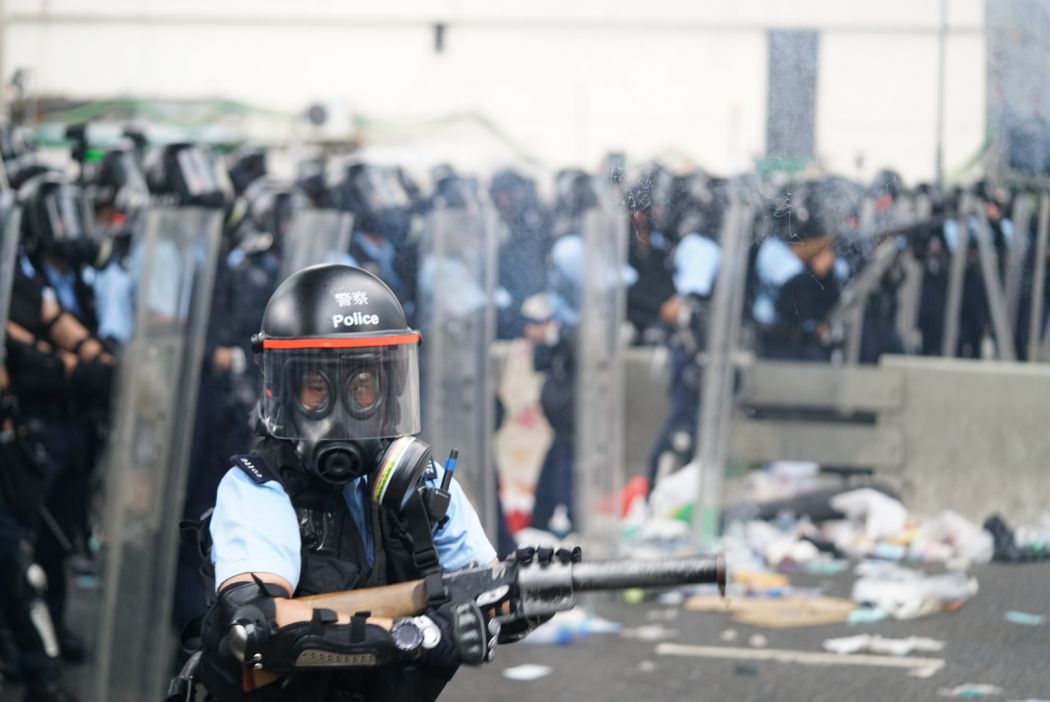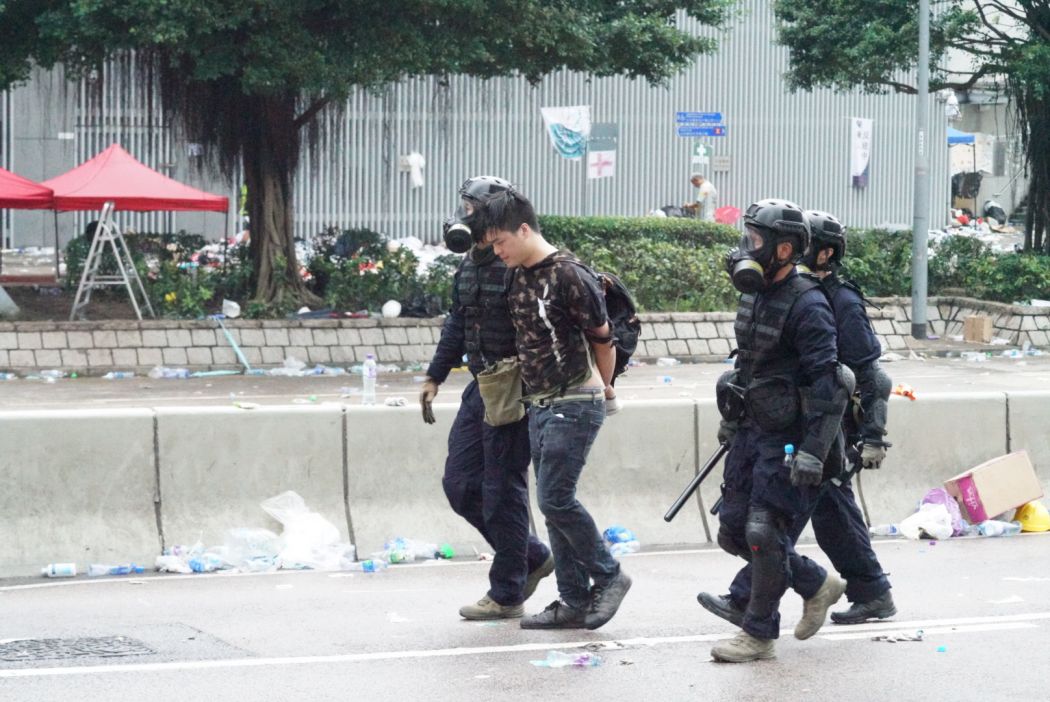By Kieran Colvert
Here’s a question for every officer in the Hong Kong police – if the Hong Kong government asked you to shoot to kill to clear protesters from the streets would you do it? This might sound like a far-fetched scenario in Hong Kong – a place which has, until now, been dramatically different from Mainland China in terms of citizen’s rights and the rule of law. Having witnessed the grim scenes unfolding in Admiralty yesterday, and given that two people are currently in intensive care as a result of the police action, this question, unfortunately, may become all too relevant for people serving in the Hong Kong police.
Back in June 1989, the Chinese government decided that it was perfectly acceptable to send in troops armed with live ammunition to end a democracy protest. The numbers killed on the night of 4 June are still disputed, in large part because the massacre has been subject to a remarkably successful whitewash in Mainland China, but estimates of the death toll range from several hundred to thousands.

Once again, comparing the situation in Hong Kong 2019 to that in Beijing in 1989 might seem absurd, but what has been happening in Hong Kong since the umbrella movement of 2014 suggests that we are on a dangerous slide towards increasingly violent confrontation between protesters and police. Firstly, it has become clear that Hong Kong people will not get the democracy, along with their right to freedom of assembly and freedom of speech, promised them by the basic law. Moreover, no amount of peaceful protest will make the slightest difference to the government’s intention to dismantle Hong Kong’s civil liberties, our free and independent judiciary and our free and independent press. This doesn’t leave many options to those who want to protect these essential pillars of Hong Kong’s way of life.
Secondly, the new tactics of the police were grotesquely on view in yesterday’s suppression of the anti-extradition Bill protest
– tear gas and rubber bullets directed at unarmed, peaceful protesters. The police, of course, were only following orders. It would be a pity if the battle to prevent the extradition bill becoming law gets sidetracked into a confrontation between protesters and the police. The police are not the ones guilty of drafting this ugly piece of legislation and pushing it through LegCo without proper public consultation and despite the biggest public protest since 2003. That is the fault of the current administration with Carrie Lam at its head.

The question remains, however, in the years ahead, how far will the Hong Kong police be prepared to go to do the bidding of their political masters? After 2047, when the Chinese government no longer even has to pretend to uphold the ‘one country, two systems’ principle, when the government in Hong Kong will not even have to pretend to be acting in the interests of the Hong Kong people, the scenario seems to be rather bleak. Will we hear Hong Kong politicians framing protests as ‘a conspiracy to overthrow China’s political system and major party leaders’ – where have we heard that language before? They will, undoubtedly, play the law and order card. Perhaps they will resort to characterising the protesters as terrorists. Maybe, by then, they will not have to do any of this because we will all be neutralised as active citizens by the combined effects of capitalism and 21st-century totalitarian advertising.
My hope is, of course, that sanity will prevail in Hong Kong, that a Tiananmen scenario could never play out in Hong Kong streets, that the people behind the gas masks, body armour, truncheons and riot shields in Wednesday’s confrontation would put their conscience above their duty to obey and refuse to use lethal force against their fellow citizens.
Kieran Colvert is a writer and long-term resident of Hong Kong.
Kong Tsung-gan‘s new collection of essays – narrative, journalistic, documentary, analytical, polemical, and philosophical – trace the fast-paced, often bewildering developments in Hong Kong since the 2014 Umbrella Movement. As Long As There Is Resistance, There Is Hope is available exclusively through HKFP with a min. HK$200 donation. Thanks to the kindness of the author, 100 per cent of your payment will go to HKFP’s critical 2019 #PressForFreedom Funding Drive.

